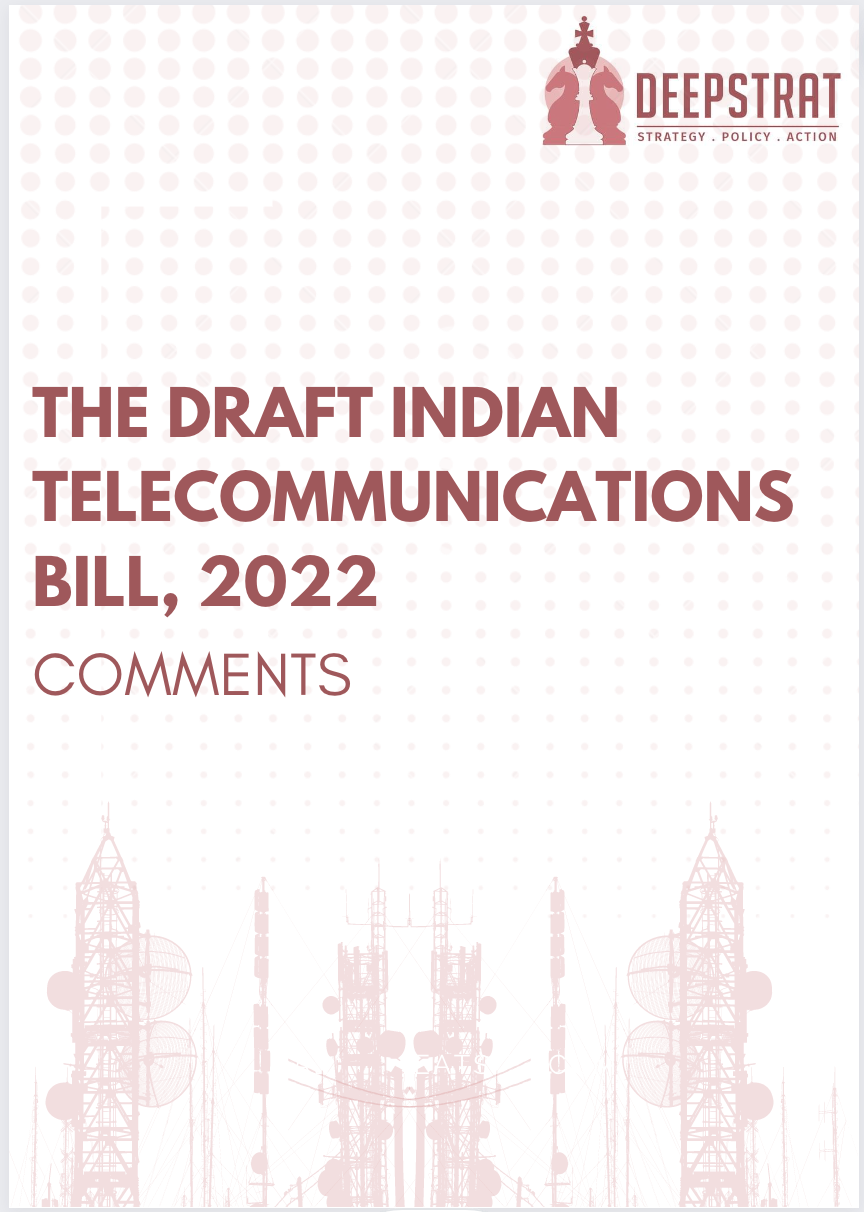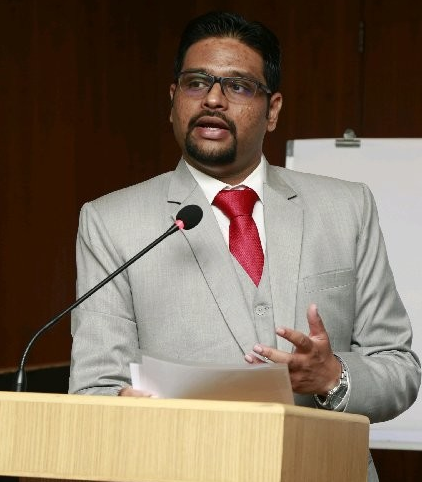Comments on the draft Indian Telecommunications Bill, 2022
| Provisions in the Bill |
DeepStrat Comments |
| Definitions (Sec 2) |
- While the inclusion of new services was expected in the definition of “message”, the broad sweep of phrases such as “data stream” and “intelligence” may need further clarifications. In particular, the requirement for such services to be compliant to a licencing regime under the new framework may increase compliance costs and give the government a greater control over their functioning.
- Broad definitions will not bode well for the content-focused Indian start-up ecosystem. Pitted against telecom and OTT players with deep pockets, the Indian start-up ecosystem may find itself on the at a competitive disadvantage if it is to be compliant to current definitions enumerated in the bill.
- It may be prudent to bring in a high degree of nuance in the definition of these contagious terms at the earliest. Clarity will feed into the policy certainty that the bill looks to bring into the telecommunication sector in India.
|
| Spectrum Management (Sec 5) |
- The proposed spectrum management framework while forward looking, retains aspects of discretionary exceptions to be made in the spectrum allocation by the Government of India under the broadly undefined aspect of “public interest”.
|
| Right of Way (Sec 12-18) |
- These are welcome provisions considering that RoW issues have been stated as a reason for delay in successful implementation of the Bharat Net broadband program, which sought to bring fibre optic connectivity at village-level in the country.
- The bill provides elaborate illustrations about different RoW scenarios. If such illustrations had been provided for other clauses as well then it would have been an immense value add to the bill.
|
| Payment Defaults and Insolvency (Sec 19-22) |
- While the clarity in reassigning spectrum ownership to Government of India was much needed, provisions for relief in defaults may end up adding an additional burden on the public exchequer if called upon indiscriminately. The lack of an oversight mechanism for these exceptions is also a concern.
|
| Standards, Public Safety and National Security (Sec 23-26) |
- These provisions continue to mimic colonial era laws which the bill seeks to replace. The bill was an excellent opportunity for the Government of India to initiate surveillance reforms that are forward looking and citizen centric. Earlier instances of attempting to prescribe technical standards for the telecommunications have met with mixed reactions.
- India has the dubious distinction of being the country with the maximum internet shutdowns in a calendar year and this bill misses an opportunity to set in place a framework at how this issue could have been handled in a more inclusive manner than it is done at present.
- India’s surveillance regime also lacks any judicial or parliamentary oversight. It continues to follow outdated regulations that arose from the PUCL vs UoI case (AIR 1997 SC 568, JT 1997) that were incorporated in Rule 419(a). The proposed draft Bill fails to address these major gaps in safeguards, especially since the Supreme Court in the K.S. Puttaswamy v. Union of India (AIR 2017 SC 4161), that has recognised privacy as a fundamental right and also laid down the triage of necessity, proportionality and legality for permitting lawful surveillance by a government-notified agency.
|
| Protection of Users (Sec 33-34) |
- The bill mandates that it shall be a duty of every citizen not to furnish any false particulars, suppress any material information or impersonate another person while establishing identity for availing telecommunication services.
- Fraudulent behaviour such as this is already punishable under the Indian Penal Code and attributing it the tag of “duty” – a constitutionally non enforceable concept brings about a distinct dichotomy in the bill.
|
| Repeals and Savings (Sec 52-53) |
- An analysis of the different provisions to be repealed or deleted from existing regulations/laws reveals that some of the key powers of the Telecom Regulatory Authority of India (TRAI) may be curtailed under the new regime. The proposed bill:
- Removes provision to seek TRAI’s views before granting new license.
- Removes provision that empowered TRAI to request the government to furnish information or documents necessary to make this recommendation.
- Removes provision that mandated DoT to refer back recommendations made by TRAI if it was not in agreement with them.
- This is likely to give more discretionary power to the Ministry, and in turn, the government, while reducing the sector regulator’s ability to influence policy.
- The government becoming operator (BSNL/MTNL), licensor and regulator as proposed in the bill goes against the spirit of the “Maximum Governance, Minimum Government.”
|




